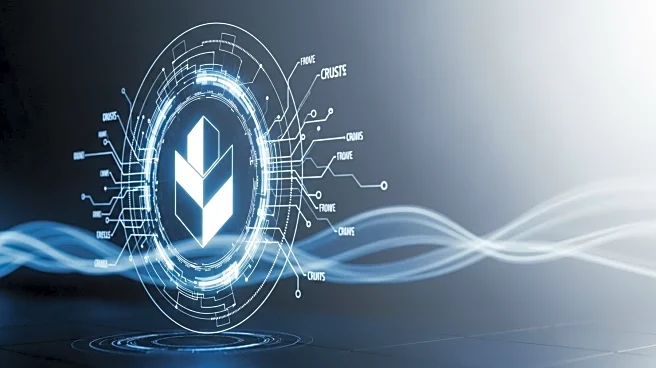What's Happening?
MQube, a UK-based fintech company, has successfully tokenized £1.3 billion (approximately $1.73 billion) of mortgage debt on the blockchain through its lending division, MPowered. This marks the first instance of a European mortgage lender moving residential mortgage assets onto an Ethereum Virtual Machine compatible chain. The tokenization process involves converting mortgage debt into digital tokens recorded on a distributed ledger, paving the way for a new mortgage securitization market via blockchain technology. This development follows a growing interest in blockchain applications within financial services, where institutions are exploring distributed ledger technology for asset management and trading.
Why It's Important?
The tokenization of mortgage debt by MQube represents a significant advancement in the use of blockchain technology within the financial sector. By moving mortgage assets onto a blockchain, MQube is setting a precedent for other financial institutions to follow, potentially transforming the mortgage securitization market. This could lead to increased efficiency, transparency, and security in mortgage transactions, benefiting both lenders and borrowers. Additionally, the successful implementation of this technology may encourage further exploration and adoption of blockchain solutions in other areas of finance, driving innovation and potentially reshaping traditional financial systems.
What's Next?
As MQube continues to leverage blockchain technology for mortgage debt tokenization, other financial institutions may begin to explore similar applications. This could lead to a broader adoption of blockchain in mortgage securitization, potentially transforming the industry. Stakeholders, including regulators, lenders, and borrowers, will likely monitor the outcomes of MQube's initiative closely. Future developments may include the expansion of blockchain applications to other asset classes and financial services, further integrating distributed ledger technology into mainstream financial operations.
Beyond the Headlines
The tokenization of mortgage debt raises important questions about the regulatory framework governing blockchain transactions. As this technology becomes more prevalent, regulators may need to adapt existing policies to ensure compliance and protect stakeholders. Additionally, the shift towards blockchain-based securitization could impact traditional financial institutions, prompting them to innovate and adapt to remain competitive. This development also highlights the potential for blockchain to democratize access to financial services, offering new opportunities for investors and borrowers alike.










